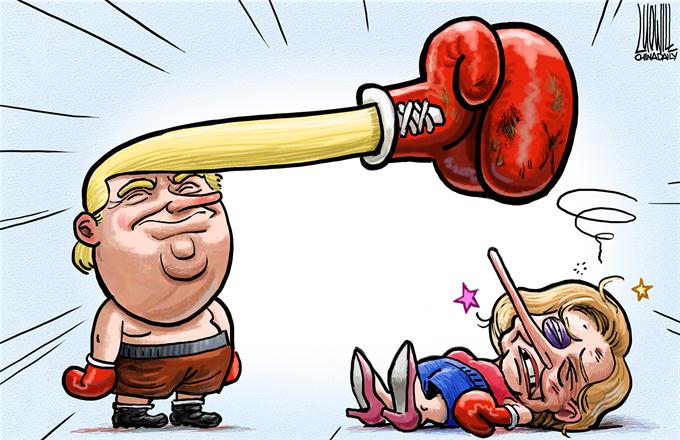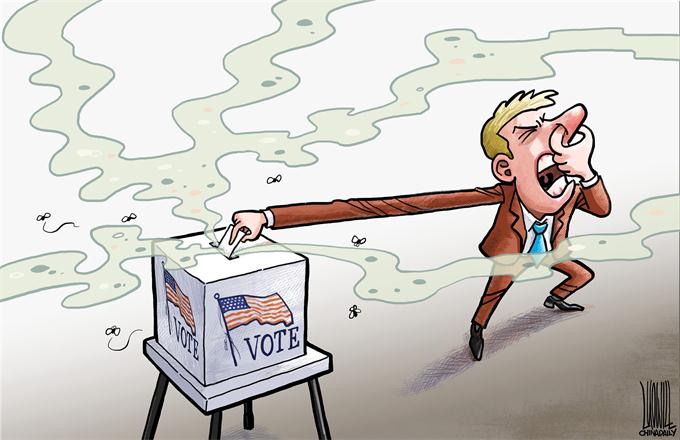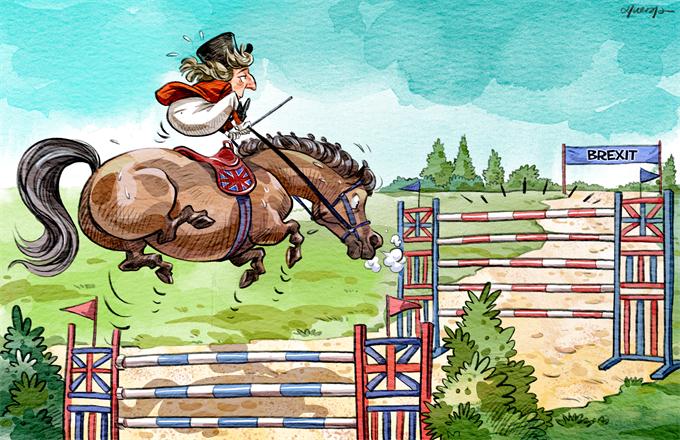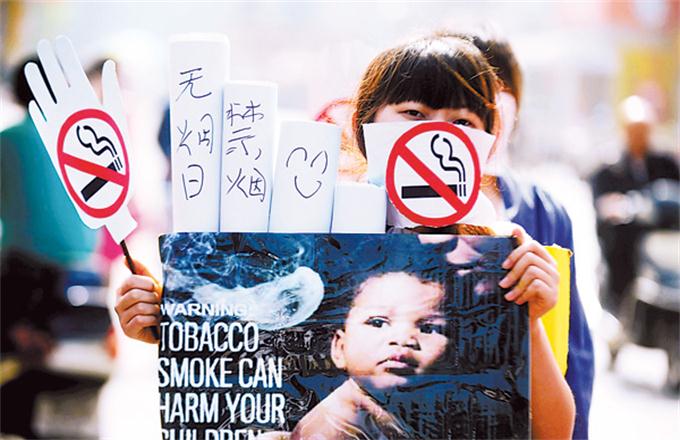Candidate Donald vs president-elect Trump
Before:
"I will build a great, great wall on our southern border, and I will make Mexico pay for that wall. Mark my words."
"My IQ is one of the highest - and you all know it! Please don't feel so stupid or insecure; it's not your fault."
After:
"We will get along with all other nations, willing to get along with us ... We will have great relationships."
"Every single American will have the opportunity to realize his or her fullest potential."
These contradictory statements are made by the same person, Donald Trump, who has just won the 2016 US presidential election and will become the 45th US president on Jan 20.
Trump was famous for being a big mouth during the presidential election campaign. Yet as soon as he won the election, he changed his style. He gave a victory speech like all normal US politicians and he is no longer the "reckless" campaigner.
On Thursday, after his first face-to-face meeting with US President Barack Obama in the White House, the president-elect even said he had "great respect" for Obama and called him a "very good man". That was in total contrast to his vitriolic barbs against Obama during the election campaign.
In fact, quite a number of scholars and media outlets say the outrageous comments by Trump were just campaign rhetoric. There will, of course, be changes in policies, but the US political system will remain the same and US interests will still be supreme.
So did Trump use the outrageous remarks as a strategy just to win votes? Nobody knows. But if he did use them as a strategy, it has worked.
As Darrell M. West, a senior researcher at Brookings Institution, said, Trump has won a very important group of voters, white blue-collar workers. Those white blue-collar workers believe they lost their jobs because of globalization and because Obama adopted favorable policies toward the minorities such as African Americans.
That's why Trump's remarks appealed to them: He called for trade protectionism and promised to curb immigration into the US.
But white blue-collar workers are not the only group that supports Trump. His supporters include many college graduates trying to find a job, war veterans who feel lost and all those who believe they have been deprived by globalization.
Trump won also because his supporters turned up in greater numbers to vote than those of Clinton. While Clinton focused on the elite group, Trump sought help from people living at the bottom of American society. Remember the slogan, "We are the 99 percent".
Trump's success has a lot to do with social media, too. Few, if any, TV channel dared to broadcast his racist, misogynistic and politically incorrect remarks in full for reasons of propriety. But they spread quickly on Twitter, perhaps because they appealed to Americans who are tired of elite politicians and their overused politically correct statements that do not solve any problems.
Furthermore, when the Federal Bureau of Investigation decided to drop the charge against Clinton in the email scandal on Nov 6, some people protested on Twitter, with one even launching a hashtag: "Hillary for Prision". The creator used "prison" instead of "prison" to bypass as well as make fun of the censorship on Twitter, which further damaged Clinton's image and pushed Trump toward his victory.
China Daily's editorial on Thursday said president-elect Trump may be different from Trump the presidential candidate. Trump will be sworn in as US president on Jan 20, 2017, and he has plenty of time to adjust to his new job.
The author is a writer with China Daily. [email protected]
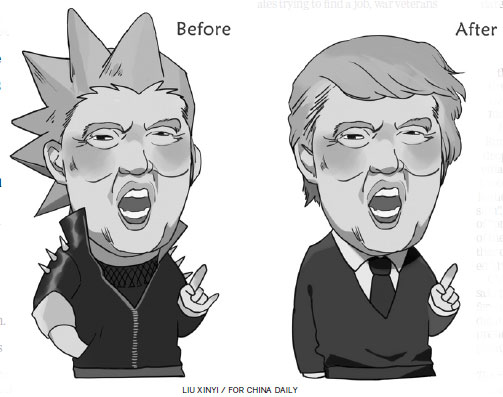
(China Daily 11/12/2016 page5)







